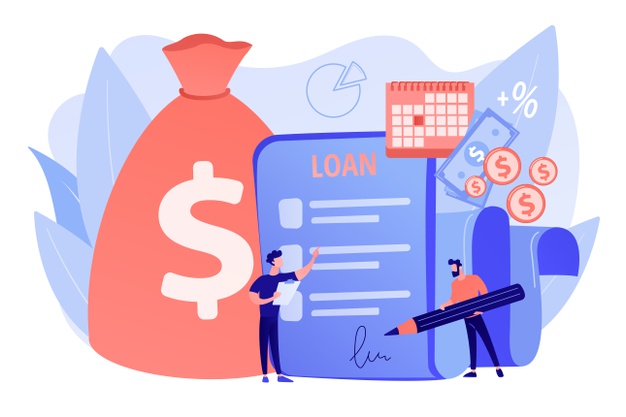
Starting up a business isn’t easy. It takes a lot of guts, knowledge and, in most cases, some start-up money. Even if you do cover all those and start a new business venture, it’s easy to wind up in a bit of pickle in these troubling financial times.
Fortunately, there are small business loans you can take out to help you pull through the rough patch. Now, it is not always so easy to secure a loan, and in most cases, you don’t even know whether you can apply or secure a loan, regardless of its size.
Now, that’s not your fault. In many cases, it simply isn’t clear enough which requirements need to be met in order for you to receive the funds. Fortunately, we are here. Today, we’re going to discuss small business loans, how do you know whether you qualify or not and what are the usual requirements. So, without further ado, let’s get started!
How Do You Know If You Qualify For A Loan?

In most cases, everyone is fully aware that they need to meet the requirements when it comes to credit score and annual revenue, but what many don’t know, that in some cases, you might need to meet the lender’s unique qualifications and requirements.
Now, the truth is, some are more strict, some are less. Usually, you’ll either get a loan from the bank or an online lender or, in some cases, from a lender backed by SBA.
In general, the SBA-backed lenders are the strictest when it comes to requirements. It will be necessary for your business to meet the SBA’s definition of a small business and operate as a for-profit company. You can apply for an SBA loan from Kapitus by visiting their website. Also, businesses such as life insurance companies or financial businesses don’t meet the requirements. Furthermore, you’ll have to have your finances in order. If you’re late on your mortgage or student loans – you’re out.
Banks, on the other hand, are far less strict. Usually, you’ll have to meet the usual requirements, such as a good credit score and other traditional factors. By traditional factors, we mean financial and legal documentation – things like income tax returns, personal and business bank statements, commercial leases, balance sheets, and so on.
Online lending businesses are the easiest ones to deal with. They will offer business loans even to owners with bad credit and the ones who haven’t been in the business for too long. Also, quite often, you won’t need much documentation, if any at all. On the other hand, this usually comes at a price. You will probably have to pay back more than you would if you were to go to the bank or an SBA backed lender.
In the end, it is not strange for a lender to require a strong business plan. Don’t expect this to happen at Thinking Capital, but in some other cases, it might. You will need to make a strong case in those instances, and you’ll need a fool-proof business plan. Those will show your lender you have the needs and means to pay them back.
Now, let’s expand on the usual requirements and what do they all mean.
Credit Score

First and foremost, to secure most small business loans, you’ll need a good credit score. If you’re young, this may be an obstacle for you since you haven’t had the time to build yours yet, but some lenders take that into consideration, so that’s a plus.
A good credit score can sometimes help you if you don’t meet some of the other requirements. For instance, if you’re running a business for only a few months, a good credit score could help secure the loan, even if you haven’t been in the business long enough for you to formally qualify.
How Long Have You Been In The Business

If you’re looking to secure an SBA loan, you’ll probably have to be in the business for more than two years. In most cases, you will have to provide your lender with the documents, such as tax returns, that you’ve been in the business for over two years. Now, this is not always the case, but if you’re planning on applying for an SBA loan, chances are, it probably will be one of the requirements you’ll have to meet.
The Rating

Another thing that’s somewhat related to how long you’ve been in business is the rating a bank will assign you when you apply for a small business loan. To put it simply, a rating is the total amount of borrowing capacity you qualify for. Now, if you’ve been in the business longer, your rating should be higher, and that could increase your chances of qualifying for a small business loan.
Additionally, a rating is often calculated by examining your average daily balance. If your average daily balance is above $10,000 for three months, you’re probably going to get approved. Therefore, if you know you’re about to take out a loan, get your finances in order for a few months to make this process easier.
Balance Sheet

As you might’ve guessed, a balance sheet could play a significant role in the process. A lender must see that your business is making money in order for you to secure the loan. You’ll probably have to present them with a balance sheet. A balance sheet will include your company’s liability, assets, and the owner’s equity. Based on those three parameters, a lender will deduce whether the company is worth the risk or whether the loan you’re asking for is comparable to your company’s worth.
Collaterals

Now, in most instances, you will not need an asset to serve as collateral for a small business loan, but in case you do, you will have to provide proof that you own the assets that could be used as collateral in case you don’t manage to repay the loan. In case you are looking for online lenders for poor credit, it will be good to do deep investigation on which website and page you are doing this.
We wouldn’t really advise taking this route unless you’re confident you’ll be able to repay the loan.
Conclusion
As you can see, there a few boxes you to have checked if you want to make sure you secure a small business loan. Take a look at all of these, compare them to the lender’s requirements, and you should be able to tell whether you are qualified for a loan or not.








